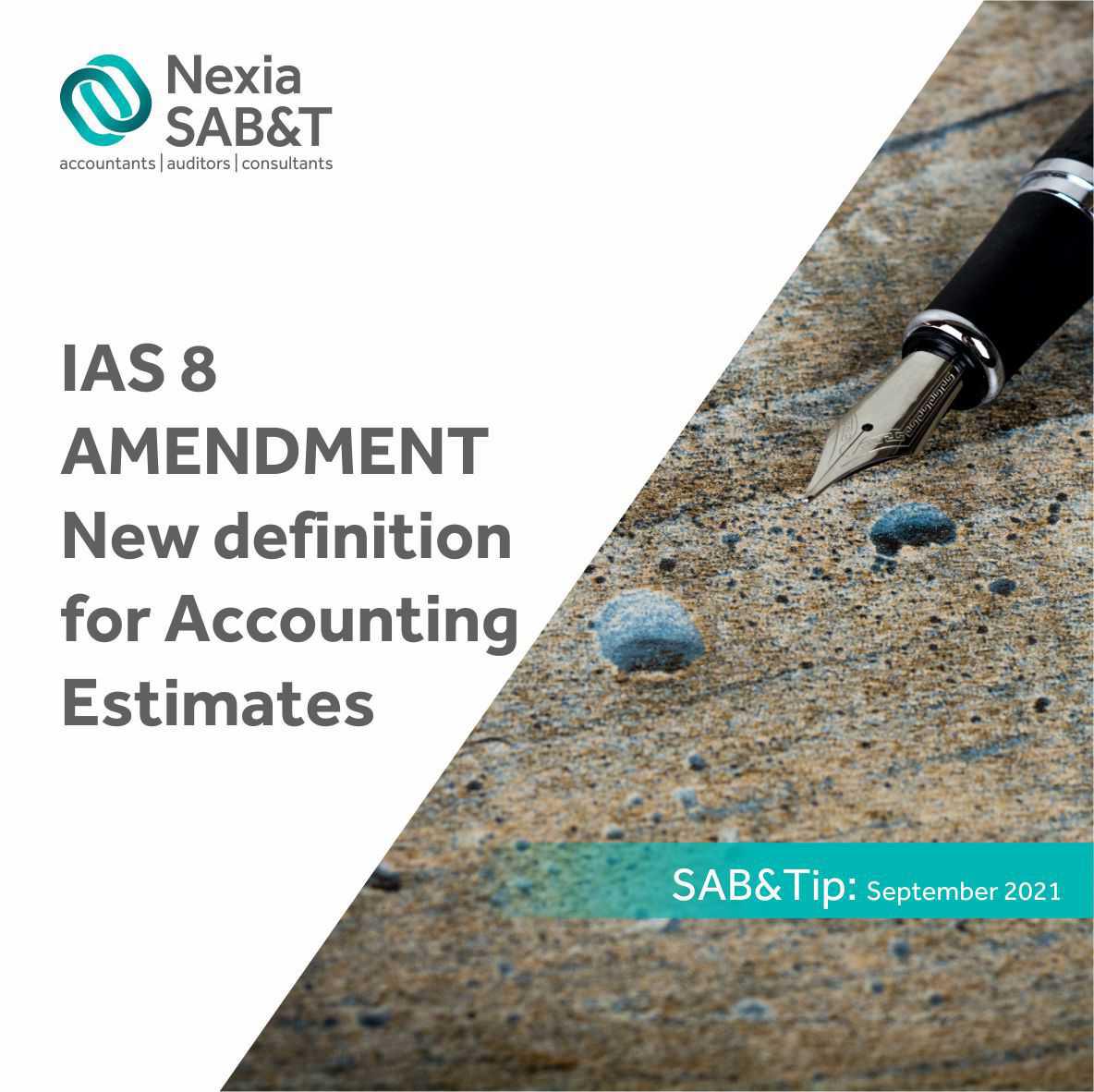Amended IAS 8 removes the definition of a change in accounting estimates and replaced it with a new definition for Accounting Estimates. Entities often struggle to differentiate between changes in accounting policies and changes in accounting estimates. Diversity in practice has been noted in this regard. The amendment aims to reduce the diversity.
The assessment of whether certain changes made by an entity should be accounted for as a change in an accounting policy (or even errors) or change in an accounting estimate has long been an area of contention. Identifying a change correctly has significant impact on how the change is being made. Changes in accounting policies (and correction of errors) are applied retrospectively, while changes in accounting estimates are applied prospectively.
The amended standard defines accounting estimates as:
“Monetary amounts in financial statements that are subject to measurement uncertainty”
Although the definition of a change in accounting estimate has been removed, the standard still explains that changes in accounting estimates arise when changes in the circumstances on which the accounting estimate was based occur or because of new information, new developments or more experience. By its nature, a change in an accounting estimate does not relate to prior periods and is not a correction of an error.
A change in an input or a measurement technique used to develop an estimate are changes in accounting estimates unless they result from the correction of prior period errors. Changes in the measurement basis will result in a change in accounting policy.
“An accounting policy may require items in financial statements to be measured in a way that involves measurement uncertainty - that is, the accounting policy may require such items to be measured at monetary amounts that cannot be observed directly and must instead be estimated. In such cases, an entity develops an accounting estimate to achieve the objective set out by the accounting policy” (IAS 8.32).
Inputs to estimates
The term “estimate” is often used in accounting and this reference may sometimes refer to estimates other than those which would meet the definition of accounting estimates. The amended standard clarifies that not all estimates will meet the definition of an accounting estimate, but rather may refer to inputs used in developing accounting estimates.
For instance, depreciation expense is an accounting estimate. However, the estimated useful lives, residual values and condition assessment will all be inputs used to calculate the estimate, and changes in these will still result in a change in accounting estimate.
Measurement techniques changed
Where an entity changes a measurement technique (approach for how it measures), it will result in a change in accounting estimate.
For example, where an entity applies the fair value model to investment property in terms of IAS 40 and change its valuation technique from the income approach to the market approach, this will still be a change in estimate1. The change results from a change in market conditions as permitted by IFRS 13 Fair Value Measurement.
The change in the valuation technique is a change in the measurement technique applied to estimate the fair value of the investment property. The effect of this change is a change in accounting estimate because the accounting policy (i.e., to fair value investment property) has not changed.
Prior period errors
Prior period errors may still arise in accounting estimates where inputs used were incorrectly applied or information was available but was omitted from the calculation.
Changes in accounting policies
There were no amendments made to the definition of an accounting policy or how and when changes in accounting policy is considered appropriate. Examples of changes in accounting policies include changing the measurement basis from cost to fair value or revaluation.
The amended IAS 8 also explains the link between accounting estimates and accounting policies as follows:
© 2020 Nexia SAB&T. ALL Rights Reserved. Nexia SAB&T is a member of Nexia International, a leading, global network of independent accounting and consulting firms that are members of Nexia International Limited. Nexia International Limited, a company registered in the Isle of Man, does not provide services to clients. Please see the “Member firm disclaimer” for further details.

